Neuroscience
-
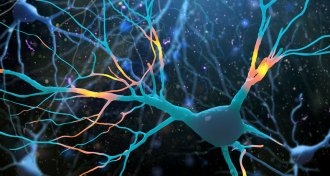 Health & Medicine
Health & MedicineKetamine cultivates new nerve cell connections in mice
In mice, ketamine prods nerve cells to connect, which may explain the hallucinogenic drug’s ability to ease depression.
-
 Neuroscience
NeuroscienceOur brains sculpt each other. So why do we study them in isolation?
Studying individual brains may not be the way to figure out the human mind, a social neuroscientist argues.
-
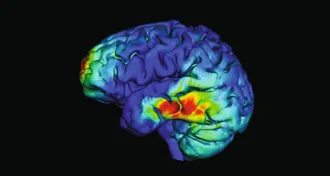 Health & Medicine
Health & MedicineWhen an older person’s brain waves are in sync, memory is boosted
A brain stimulation treatment that nudges older people’s brain waves into sync could lead to noninvasive therapies for dementia and other disorders.
-
 Science & Society
Science & SocietyThe science of CBD lags behind its marketing
Editor in Chief Nancy Shute discusses the lack of scientific research on CBD.
By Nancy Shute -
 Science & Society
Science & SocietyThe CBD boom is way ahead of the science
As CBD-laced foods and health products gain popularity, researchers are just beginning to fill the gaping holes in knowledge about this cannabis molecule’s benefits.
-
 Health & Medicine
Health & MedicineEpileptic seizures may scramble memories during sleep
Overnight seizures seemed to muddle memories in people with epilepsy.
-
 Health & Medicine
Health & MedicineA single sweaty workout may boost some people’s memory
Memory improvements after a short bout of exercise mirrored those seen after months of training.
-
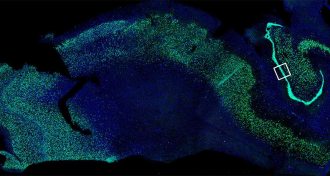 Health & Medicine
Health & MedicineSigns of new nerve cells spotted in adult brains
A study finds new evidence that adult brains grow new nerve cells, even the brain of an octogenarian.
-
 Neuroscience
NeuroscienceWomen have a new weapon against postpartum depression, but it’s costly
The newly approved drug brexanolone simulates a natural hormone to alleviate symptoms of postpartum depression.
By Jeremy Rehm -
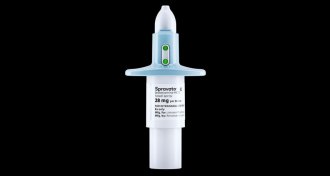 Health & Medicine
Health & MedicineA new ketamine-based antidepressant raises hope — and questions
Little is known about the long-term effects on people of a newly approved antidepressant based on the anesthetic ketamine.
-
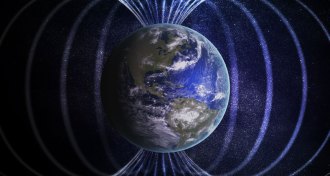 Neuroscience
NeurosciencePeople can sense Earth’s magnetic field, brain waves suggest
An analysis of brain waves offers new evidence that people subconsciously process information about the planet’s magnetism.
-
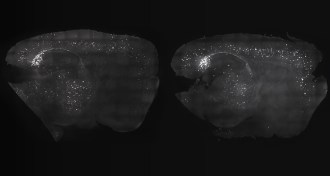 Health & Medicine
Health & MedicineFlickers and buzzes sweep mouse brains of Alzheimer’s plaques
Precisely timed clicking noises can counter signs of Alzheimer’s in the brains of mice and improve memory.